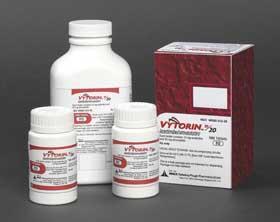Dow’s Rohm and Haas deal on the rocks
Despite having cleared European regulatory hurdles, Dow’s takeover of Rohm and Haas is hanging in the balance after state-owned Kuwait Petroleum Company (KPC) scuttled their $17.4 billion (£11.9 billion) K-Dow joint venture deal just days before it was set to close.

Dow was planning to use the $9.5 billion it was set to gain from the joint venture deal to pay a large chunk of the $15.3 billion it has agreed to pay for Rohm and Haas - and has decided to take legal action against the Kuwaiti firm in an attempt to recoup as much as $2.5 billion.
The K-Dow deal had already been devalued by around $3 billion due to the global recession, but pressure from within the Kuwaiti government has caused KPC to walk away from the deal completely. The joint venture would have reduced Kuwait’s sizeable exposure to fluctuating oil prices and enabled K-Dow to access petrochemical feedstocks at reduced costs.
’Dow are trying to follow the right strategy as you can’t run a petrochemical business without being closely integrated upstream, because these days crude oil supply and demand is much more finely balanced,’ says Paul Hodges, chairman of chemical industry consultancy International eChem. ’It’s quite extraordinary that a major Middle East government signs a deal and then two days before it’s about to start, walks away from it. The problem is a cultural one and Dow has been undone by politics.’
The American chemical giant does have an option to take a bridging loan to pay for Rohm and Haas, but is reportedly loath to do so as such a large loan would leave it perilously exposed to the credit markets should the recession worsen. Dow has said that talks with other investors to draw up a similar joint venture deal were already underway. Dow is still waiting for approval from the US Federal Trade Commission and will be hoping that approval takes some time, as it will then have to pay a $100 million a month ’ticking fee’ for every month the Rohm and Haas deal is delayed.
Matt Wilkinson
Chemical industry
More cuts as slump continues
While many find the post-Christmas season stressful enough, having overworked their credit cards to pay for presents, workers in the chemical industry have had the spectre of job cuts and unemployment hanging over them, as falling demand has continued to cause havoc in the sector.
Dutch life sciences and materials company DSM is to idle plants and axe 1000 jobs, some 5 per cent of its total workforce, as demand for some of its products has slumped due to the global downturn. While its Life Sciences businesses have been largely unaffected by the recession, its Materials Sciences divisions have not fared so well.
End-user demand in the automotive, construction and electrical sectors has led to a decrease in demand for the group’s products and temporary plant shutdowns have already been implemented.
Meanwhile,Air Products has decided to slash some 1300 jobs, 7 per cent of its workforce, to cope with reduced demand. The company expects that severance pay will cost the company over $100 million (£68.7 million).
’This is clearly one of the weakest business environments we have seen across our end-markets. However, our financial position remains strong, and with a significant portion of our business under medium- and long-term supply contracts, we expect to continue generating strong cash flow,’ said John McGlade, CEO of Air Products.
Eastman Chemical is also looking to cut costs to cope with the downturn and is aiming to save $100 million next year, by freezing wages, reducing overtime and cutting its use of contractors.
Following in BASF’s footsteps, German pharmaceutical and chemical company, Merck KGaA, is taking less drastic action, only shutting down various manufacturing operations ’on a temporary basis as needed for several weeks in the first half of 2009’. The company’s liquid crystals division has been particularly hard hit by the downturn.
Lanxess is following suit and will temporarily close plants and reduce output at more than half of its 45 production facilities in Germany, with some 1400 employees agreeing to use up holiday or reduce positive balances on their time sheets to avoid job losses.
Polystyrene sales melt away
With the recession biting ever deeper, and customers using up stocks of raw materials to save costs in the belief that prices will continue falling, yet more chemical companies are being forced to scale back production and cut jobs.
Producers of polystyrene and related styrenic polymers have been particularly hard hit by the recession, with Americas Styrenics, the Western hemisphere’s biggest producer of polystyrene, being forced to reduce production and cut some 60 jobs.
US-based Kraton has been even worse hit and has suspended production of certain styrenic block copolymers - reducing output by around 50 per cent. According to David Bradley, Kraton’s chief operating officer, the move has been designed to minimise the company’s cash burn during the current slump in demand for plastics from the housing and automotive sectors.
In November, Nova Chemicals decided to idle its styrenic polymers plant in Pennsylvania due to falling demand. In January, the company said it would cut 400 jobs - 15 per cent of its workforce - as well as some 200 contractor positions. Speaking to investors during a conference call, Jeff Lipton, the company’s CEO, said that while the fourth quarter started off badly with polyethylene (PE) prices in free fall, it improved dramatically towards the end of the year, with its sales in December the second highest in the company’s ten year history. With competitors having taken 20 per cent of North American production capacity offline due to the recession, PE prices are starting to rise again.
India invests in ethylene plant
OPAL, a subsidiary of India’s state owned Oil and natural Gas Corporation, has awarded the Linde Group and Samsung Engineering a €1 billion (£900 million) contract to build India’s largest ethylene production plant.
The plant will be part of a new petrochemical complex being built in the Indian state of Gujarat and is expected to produce 1 million tonnes of ethylene, 400,000 tonnes of propylene, 150,000 tonnes of benzene and 115,000 tonnes of butadiene each year.
Europe’s last paracetamol plant closes

Rhodia, the world’s second largest paracetamol (acetaminophen) producer, has closed Europe’s last paracetamol production plant - sparking fears in some sectors about an over-reliance on imports from Asia. The company has said it will be moving production of the 131 year old painkiller to its plant in Wuxi, China. The market for the compound, first synthesised by Harmon Northrop Morse in Germany in 1878, is estimated to be worth some $800 million (£549.8 million) a year.
In 2004, the company closed its US production plant in Louisiana, and is now closing its plant in Rousillon, France, which was manned by 43 staff. Plants in India and China now produce about 115,000 tonnes of the drug per year, supplying 70 per cent of the world’s paracetamol at around two-thirds the price that it costs to make it in the Western hemisphere. The move leaves US firm Covidien, the world’s largest paracetamol producer, as the only manufacturer still making the drug in the West.
Bayer increases research efforts
Despite the global financial crisis, Germany’s chemical and pharmaceutical powerhouse Bayer has decided to up its R&D spending, especially in healthcare. The company, which spent €2.8 billion on R&D in 2008, currently has 50 drugs in clinical development.
’Only through innovation can our company generate the growth that is essential to safeguard its sustained success,’ said Werner Wenning, Bayer’s chairman. He continued by urging the German government to follow many European countries in giving more substantial tax breaks for R&D investment - a move he believes would ultimately lead to greater investment within Germany.
Pharmaceuticals
More jobs fall off the patent cliff
With patent expiries for many of the world’s biggest selling drugs looming, big pharmaceutical firms are set to lose billions of dollars of income to generic competition, and are streamlining their operations accordingly.
Bristol-Myers Squibb is to cut its workforce by a further 10 per cent before the end of 2010, having already committed itself to cutting 800 jobs by the end of 2008. The latest cuts will bring the total number of job losses to around 4300. The company says the cuts will help it cope with the significant drop in sales it is expecting between 2011 and 2013, when three of its best-selling drugs, Plavix, Abilify and Avapro, come off patent.
Meanwhile, Pfizer has said that it will trim the number of researchers it employs by 8 per cent. The cuts look set to affect some 800 scientists, as the pharma giant streamlines operations and reprioritises its efforts in therapeutic areas it believes to be the most lucrative, such as cancer, Alzheimer’s and pain.
In December 2008, Pfizer announced that it was cutting 700 jobs from its sales and administrative operations in France. The cuts are part of the broad restructuring plans that are aimed at shaving some $2 billion from its operating budget - plans that have already seen the company shed some 13,000 jobs since 2007. The company is preparing to lose more than $13 billion of income a year when Lipitor (atorvastatin), the world’s biggest selling drug, loses patent protection in 2011. The drug could have lost patent protection earlier if US courts had not allowed the company to correct ’inconsistent language’ that a US appeals court said invalidated the patent. The decision will bolster Pfizer’s chances of preventing Apotex and Teva from selling generic copies of the drug before November 2011, when Ranbaxy will launch a copycat version.
AZ coughs up for two new deals
Anglo-Swedish pharma firm AstraZeneca (AZ) has signed a deal worth up to $900 million with US formulation expert MAP Pharmaceuticals to commercially develop a more effective formulation of budesonide, the active ingredient in AZ’s asthma treatment Pulmicourt. MAP’s ’unit dose budesonide’ is currently in Phase III clinical trials for paediatric asthma, and according to the firm has the potential to be nebulised more quickly and can be used at a lower dose than the commercially available product.
AZ has also signed a product development deal worth up to $422 million with UK-based Biocompatibles for a glucagon-like peptide (GLP-1) analogue for treating diabetes and obesity. Much of the preclinical development work will focus on developing the delivery mechanism so that the drug can be taken less frequently, and with less nauseating side effects, than Novo Nordisk’s successful GLP-1 analogue liraglutide.
FDA advisors back pharming
The US Food and Drug Administration (FDA) has completed its review of the controversial Enhance clinical trial, which had seemed to show that the expensive cholesterol-lowering combination drug Vytorin worked no better than cheaper, generic statins.

Initial results showed that Vytorin was no more effective at reducing the build up of plaques in neck arteries than Zocor - causing prescriptions of Vytorin to fall by 39 per cent. Valentin Fuster, former president of the American Heart Association and now the director of the Mount Sinai Heart Center in New York, had cautioned there wasn’t enough evidence that the ultrasound technique used to image plaque build up could predict the risk of heart attack or stroke, and that a two year study wasn’t long enough to see the real benefits on a disease that can take 20 or 30 years to develop.
However, the results of the study also showed that Vytorin decreased the amount of ’bad’ LDL cholesterol by 56 per cent, compared to the 39 per cent drop seen in those taking Zocor alone. A statement from the FDA said it still believed that medicines that reduce bad cholesterol benefit patients at risk from heart attacks, strokes or sudden death.
Bayer sues Abbott
Germany’s Bayer has filed a law suit against US-based Abbott for an alleged patent infringement relating to Abbott’s top-selling drug Humira. Bayer claims the drug infringes its 1997 patent that covers the use of human antibodies that fight the TNF (tumour necrosis factor) protein that causes the inflammation seen in autoimmune diseases such as rheumatoid arthritis and Crohn’s disease.
Bayer is asking the US District Court for the Eastern District of Texas to determine damages for past and future infringements of the patent by the drug, which Abbott has predicted will have sales in excess of $4.4 billion this year.
Merck & Co. sells lab to CRO
In an unusual twist on the outsourcing trend sweeping through the pharmaceutical sector, Merck has sold a 130 000 sq ft vaccine testing laboratory to contract research organisation (CRO) PPD, and then signed a five year deal to make use of the facility. PPD has hired the Merck employees who currently work at the facility who will be assisting Merck with assay development and immunogenicity testing services to support Merck’s vaccine development programme.
The deal somewhat mirrors the one struck between Eli Lilly and CRO Covance, which saw Covance buy one of Lilly’s laboratory facilities and agree to provide Lilly with pre- and early-stage clinical testing services for 10 years.
GSK swells pipeline
UK pharma giant GlaxoSmithKline (GSK) is making a big push into the inflammatory disease area by signing three new development deals and extending another. The push started in December with GSK signing an $800 million drug development and commercialisation deal with Californian biopharmaceutical firm Dynavax, gaining access to drug candidates that target autoimmune and inflammatory diseases such as lupus, psoriasis and rheumatoid arthritis. The drugs work by inhibiting the endosomal Toll-like receptors (TLRs) that play a key role in inflammatory responses and blocking them has been shown to reduce symptoms in multiple autoimmune diseases models, such as lupus, inflammatory skin disorders, and rheumatoid arthritis.
The pharma giant then extended its osteoarthritis alliance with Belgian drug discovery company Galapagos to include two additional drug targets, before signing up US biopharmaceutical firm Archemix in a deal worth up to $1.4 billion. The alliance will see Archemix develop aptamer (short sequence nucleic acid) therapeutics to treat diseases such as rheumatoid arthritis and inflammatory bowel disease. GSK will pay Archemix an initial upfront payment of $27.5 million as well as investing $6.5 million in the company.
Then, at the beginning of January, the company signed up UK-based Biotica to use its bioengineering technology to discover and develop erythromycin-based macrolides that are not readily accessible using conventional medicinal chemistry approaches. Biotica stands to receive £86 million per compound in success-based milestone payments as well as tiered royalties on products sales. GSK has also made an upfront equity investment in the firm.
Wyeth to become vaccine king?
Dutch vaccine expert Crucell has said it is in ’friendly discussions’ with Wyeth about a possible merger, estimated by the Wall Street Journal to be in the region of $1.35 billion. Crucell has cautioned that the talks, ’at a preliminary stage’, may not culminate in a deal.
According to Dutch market analysts at SNS Securities, the $1.35 billion figure undervalues Crucell, and the talks could trigger a bidding war between Wyeth and its European competitors Novartis and Sanofi Aventis.
FDA gives Vytorin the thumbs up
he US Food and Drug Administration (FDA) has completed its review of the controversial Enhance clinical trial, which had seemed to show that the expensive cholesterol-lowering combination drug Vytorin worked no better than cheaper, generic statins.

Initial results showed that Vytorin was no more effective at reducing the build up of plaques in neck arteries than Zocor - causing prescriptions of Vytorin to fall by 39 per cent. Valentin Fuster, former president of the American Heart Association and now the director of the Mount Sinai Heart Center in New York, had cautioned there wasn’t enough evidence that the ultrasound technique used to image plaque build up could predict the risk of heart attack or stroke, and that a two year study wasn’t long enough to see the real benefits on a disease that can take 20 or 30 years to develop.
However, the results of the study also showed that Vytorin decreased the amount of ’bad’ LDL cholesterol by 56 per cent, compared to the 39 per cent drop seen in those taking Zocor alone. A statement from the FDA said it still believed that medicines that reduce bad cholesterol benefit patients at risk from heart attacks, strokes or sudden death.
Generics giant under the hammer
Ratiopharm, the world’s fourth largest generics manufacturer, has been put up for sale after its billionaire owner Adolf Merckle committed suicide following the demise of his 120 company empire.
The family’s holding company, VEM, finally got approval for a €400 million bridging loan that buys the family time to work out how to restructure the business empire built up by Merckle over the last 40 years. One of the stipulations of the loan is that VEM sell off Ratiopharm, which has annual sales of around €1.8 billion.
Energy
Sunny future for Hemlock
The Hemlock Semiconductor group is investing up to $3 billion to expand its production capabilities of polycrystalline silicon to 34 000 tonnes a year. The material is used to make semiconductor chips and solar cells. The company currently produces some 19 000 tonnes of silicon a year after having invested nearly $5 billion over the past five years to meet the growing demand from the solar industry.
Electric cars gain momentum
German chemical producer Evonik is teaming up with carmaker Daimler to develop and build new lithium-ion batteries for use in cars. The companies have set-up a joint venture, Li-Tec, and are looking for a third investor to aid in integrating the electronic systems. According to the companies, Li-Tec batteries will soon be appearing in hybrid and electric cars made by Mercedes-Benz.
Meanwhile, General Motors has said that Korea’s LG Chem will supply lithium-ion battery cells for the Chevrolet Volt plug-in electric car that GM plans to release next year. So far GM has invested more than $1 billion developing the car.
In brief
Evonik catalyses growth in China
German chemical giant Evonik has started building a precious metal catalyst manufacturing plant in China so it can supply its customers in the region more efficiently. The catalysts are used in the synthesis of pharmaceuticals and fine chemicals where high selectivity, activity and ease of separation are key selling points.
Rhodia buys to resist downturn
French chemicals company Rhodia has agreed to buy the US-based McIntyre Group for an undisclosed amount. The group, which makes surfactants, polymers, speciality chemicals and cosmetic preservatives, had 2008 sales estimated to be in the region of around $146 million.
According to Jean-Pierre Clamadieu, Rhodia’s CEO, the deal will reinforce Rhodia’s presence in ’innovative markets that are largely resistant to economic downturns’.
VeraSun idles as demand evaporates
VeraSun, the second largest bioethanol producer in the US, has been forced to idle three distilleries, as falling demand means ethanol prices are failing to cover the cost of production. The company was forced to seek bankruptcy protection in October, blaming fluctuating corn prices.
Sasol to invest in Indonesia
According to US market research firm Industrial Info Resources (IIR), South African energy and chemical company Sasol is planning to invest $10 billion in coal liquefaction plants in Indonesia by 2015. IIR expects the plants to produce more than a million barrels of gasoline and oil products per day.
Galapagos evolves Merck deal
Belgian-based drug discovery firm Galapagos has signed a drug discovery and pre-clinical development deal with US pharma giant Merck & Co. worth up to €170 million. The collaboration will see the Belgian firm search for new obesity and diabetes targets and then look for drugs that target them.
Actavis ’for sale’
Icelandic generics drug company Actavis is putting up the ’for sale’ sign. The company’s owner, Icelandic billionaire Thor Bjorgolfsson, is looking to raise €8 billion after he lost a sizeable chunk of his fortune in the Icelandic banking collapse.
BMS inks deal with ZymoGenetics
Bristol-Myers Squibb has linked up with ZymoGenetics in a deal worth up to $1 billion to gain rights to its hepatitis C treatment, PEG-interferon-lambda. The drug, which is in early-stage clinical trials, slows viral activity through a different, and less common receptor to the one targeted by the commonly used interferon-alpha. The firms hope this will mean the new drug will cause fewer side effects than interferon-alpha.
Roche signs up Synta
Pharmaceutical giant Roche could pay Massachusetts, US-based biopharmaceutical firm Synta more than $1 billion as part of a drug development deal targeting the inflammatory disease rheumatoid arthritis.
AZ jumps on the ’biosimilar’ bandwagon
AstraZeneca is reportedly eyeing a push into biosimilars, or follow-on biological drugs. The move follows recent reports that US rivals Merck & Co. and Eli Lilly are looking to cash in on the upcoming patent expiries of blockbuster biological drugs.
Pfizer licenses protein production technology
Pfizer has paid Sangamo Biosciences $3 million to license its zinc finger nuclease technology, which can be used to selectively knock-out genes in mammalian cells. The license will enable the pharma giant to produce recombinant proteins using Chinese hamster ovary (CHO) cells, which avoid some of the problems associated with bacterial expression systems.












No comments yet